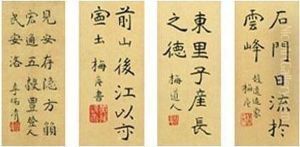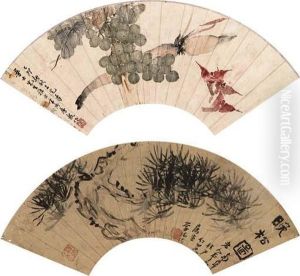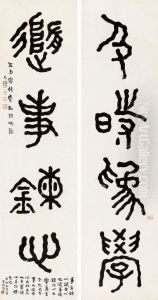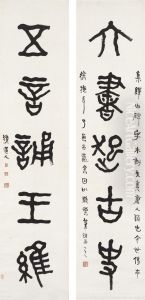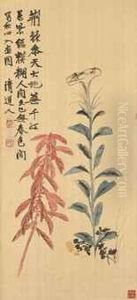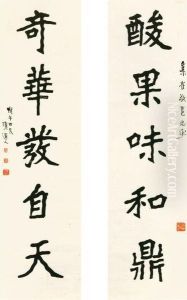Li Ruiqing Paintings
Li Ruiqing was a Chinese reformer, educator, and calligrapher, born in 1867 in Shaoxing, Zhejiang Province, during the Qing Dynasty. He was an influential figure in the late Qing Dynasty and early Republic of China periods, actively involved in the Hundred Days' Reform of 1898, a failed 103-day national, cultural, political, and educational reform movement. This period was crucial in shaping modern China's intellectual and political landscape, and Li Ruiqing's contributions to this movement were significant, albeit less known compared to other reformers like Kang Youwei and Liang Qichao.
Throughout his life, Li Ruiqing was deeply engaged in efforts to modernize China and promote educational reforms. He believed in the importance of science and technology for China's advancement and advocated for the reform of the traditional examination system, which had focused on classical Chinese texts and Confucian values for centuries. His educational reforms aimed to incorporate Western sciences, mathematics, and philosophy into the curriculum, reflecting a forward-thinking vision for China's development.
Besides his political and educational endeavors, Li Ruiqing was also celebrated for his achievements in calligraphy. He is recognized as one of the great calligraphers of his time, with a style that blended traditional Chinese techniques with innovative approaches. His calligraphy was not only a form of artistic expression but also a medium through which he communicated his reformist ideas and intellectual pursuits.
Li Ruiqing's life was a testament to the tumultuous transition from imperial to modern China. Despite facing opposition and experiencing the failure of the Hundred Days' Reform, his persistent efforts in education and cultural reform left a lasting impact on Chinese society. He passed away in 1920, leaving behind a legacy that continues to be studied and admired by scholars and enthusiasts of Chinese history and culture.

